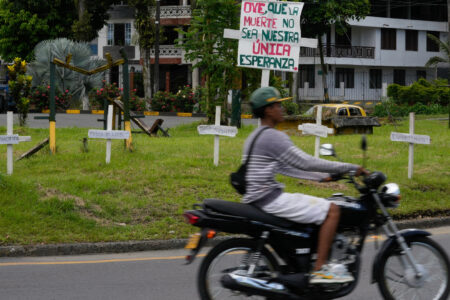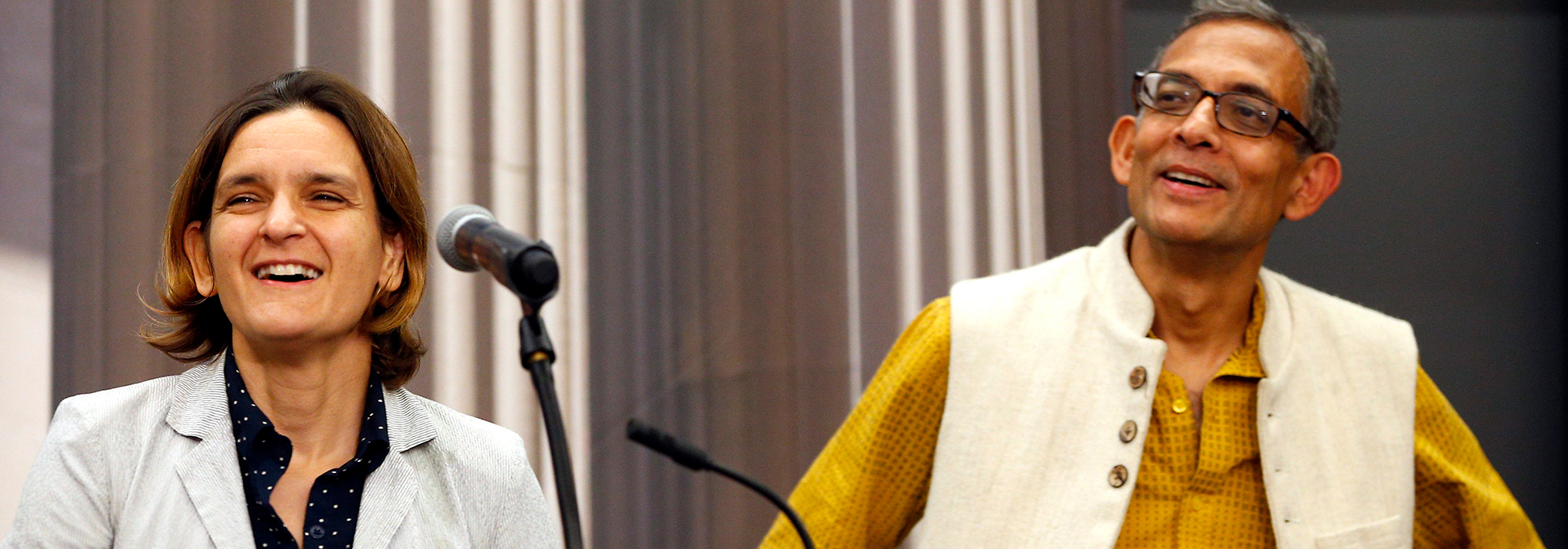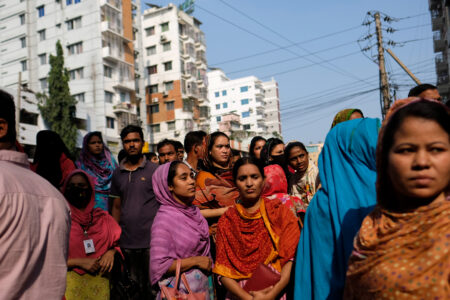
Proponents of evidence-based decision-making have a reason to rejoice. The Nobel Memorial Prize in Economic Sciences awarded recently to three development economists emphasizes the role research plays in crafting, implementing and scaling up effective policy.
The winning economists, Esther Duflo, Abhijit Banerjee and Michael Kremer, pioneered the use of an experiment-based approach, well established in the medical sciences, to test interventions that alleviate global poverty. The simple yet key element of the approach is to compare the group that receives the benefits of an intervention — the treatment group — with a similar group that does not receive the intervention — the control group.
The Nobel Prize recognizes the trio’s work in developing countries. But the fundamental concept behind their work has worldwide applications. This experiment-based approach can help strengthen the impact of Canadian-funded international assistance by using a deeper well of evidence to inform decision-making.
Evidence-based approaches can also improve domestic policy-making. For instance, the Canadian Task Force on Preventive Health Care relied on such a model to develop guidelines for behavioural interventions to prevent and treat cigarette smoking among children and youth. The guidelines recommend that primary care doctors play a more active role in the prevention and treatment of cigarette smoking in children and youth.
The capacity of the experiment-based approach to effect change has already been demonstrated. Michael Kremer and his colleagues tested the provision of free deworming pills to schoolchildren in Kenya to see whether it lowered infection rates and increased school attendance. Their research showed that the measure was successful in raising attendance rates, and it is now being implemented in five countries.
Canadian-funded researchers in developing regions have used the approach to recommend viable policy options to their governments. Research in Pakistan received funding from the International Development Research Centre (IDRC) and several other donors for trials that identified the most effective measures to address the mobility constraints preventing rural women from taking occupational training. Providing travel allowances and safe transportation wasn’t as effective as locating training centres in the villages of the targeted women. A large government program providing skills training to women is taking into account the results of this research.
“If you don’t know … the constraints that [women] face in their daily lives, you are going to throw money and not affect people’s lives,” said one of the researchers, Ali Cheema, a co-founder of the Center for Economic Research in Pakistan.
Canada’s Feminist International Assistance Policy recognizes the need for development efforts to demonstrate their effectiveness. International aid programs can deliver on this responsibility by investing in research and innovation to generate evidence demonstrating what is working well and where a different approach is necessary.
The advantages of the Nobel Prize winners’ approach extend to many aspects of poverty reduction, enabling researchers to test public policy interventions aimed at addressing challenges in health, education, microfinance and other areas. Their approach is now seen as a highly rigorous way of assessing whether it was an intervention, rather than other factors, that caused the observed change.
There is certainly no silver-bullet solution to sustainable development. No one methodology can single-handedly shape public policies. Rather, the solution is often a multidisciplinary approach that combines high-quality quantitative research — including experiment-based approaches — with equally valuable qualitative research that plays an important explanatory function.
Duflo, Banerjee and Kremer have played a significant role in creating capacity among researchers based in the global South, and their institutions, to carry out experiment-based research. The laureates’ work has also nurtured a demand for evidence-based solutions from policy-makers.
Research that uses their approach contributes to IDRC’s goal of improving the lives of people in the developing world. Among the types of projects that we fund are trials to identify incentives for families to delay marriage for their daughters, effective youth employment training programs and research into the best way of reaching young women with HIV prevention programs.
Given the scale of the challenges we face to achieve the Sustainable Development Goals by 2030, understanding what works has never been more important. That is why the attention this Nobel Prize brings to ways to make the best use of limited resources is cause for celebration.
Innovative, evidence-based approaches to policy-making allow for interventions to be evaluated and evidence gathered in real time. This vital link between policy-relevant research and evidence use makes Canada’s development assistance and indeed its overall public policy achieve greater impact.
Photo: Massachusetts Institute of Technology professors Esther Duflo (L) and her husband Abhijit Banerjee (R) who along with Michael Kremer (not pictured) of Harvard University won the Nobel Prize in Economic Sciences 2019, address friends, colleagues and the press during a news conference at the Massachusetts Institute of Technology in Cambridge, Massachusetts, on October 14, 2019. EPA/CJ GUNTHER
Do you have something to say about the article you just read? Be part of the Policy Options discussion, and send in your own submission. Here is a link on how to do it. | Souhaitez-vous réagir à cet article ? Joignez-vous aux débats d’Options politiques et soumettez-nous votre texte en suivant ces directives.











